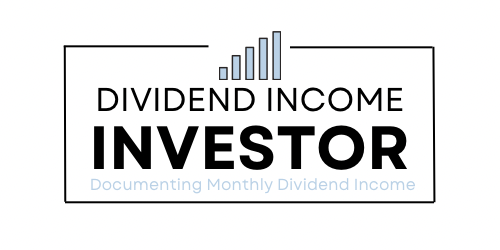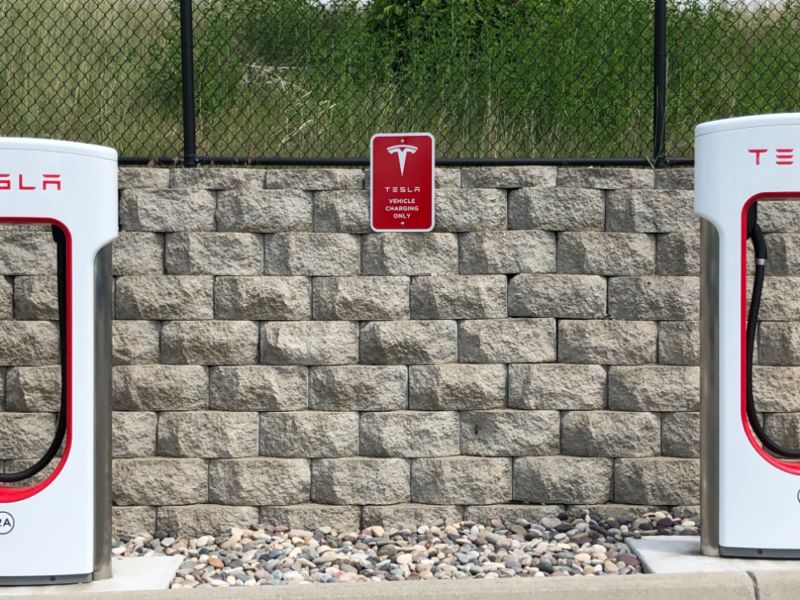Elon Musk called capital allocation boring. This article looks at what Musk’s comments mean for future investors.
The CEO of Space X and Tesla Inc. (Ticker: TSLA), Elon Musk, recently made a bold statement when he called capital allocation ‘boring’.
He made the comment on the Joe Rogan Experience podcast and used Warren Buffett, the CEO of Berkshire Hathaway, as an example.
“Let me take Warren Buffett, for example. To be totally frank I’m not his biggest fan, but he does like capital allocation and he reads a lot of annual reports of companies and other bean-counting and it’s pretty boring, really. He’s trying to figure out, does Coke or Pepsi deserve more capital? I mean it’s kind of a boring job if you ask me but it’s still a thing that’s important to figure out. Which company is deserving of more or less capital? Should that company grow or expand? Is it making parts and services that are better than others — or worse? If a company is making compelling products and services, it should get more capital and if it’s not, it should get less.” -Elon Musk
As a dividend investor, I analyze stocks like $AAPL to determine if it deserves my capital. I have also looked up to Warren Buffett ever since I became interested in investing.
So, even though I am aware of the back and fourth comments between Warren Buffett and Elon Musk, I was still surprised to hear Elon be so frank.
But also, Elon has a point about capital allocation and the future of investing. With companies like Amazon and Tesla breaking the mould, is it possible that the future of investing is different?
What is Capital Allocation?
Capital allocation refers to how a company decides to spend its earnings. The goal of allocating the earnings is to generate more earnings.
To paraphrase Investopedia, capital allocation means distributing and reinvesting financial resources in ways that will increase its efficiency and maximize profits.
This definition is rather selfish in my opinion. It does not factor in the company’s long term impact on the world.
Hence why I am beginning to question capital allocation as we know it.
Elon Musk on Capital Allocation
Although Elon was blunt about his opinion on capital allocation, he did clarify that “it’s still a thing that’s important to figure out.”
So, he wasn’t necessarily suggesting that there is no need for capital allocation. Musk was simply stating that capital allocation is not the job for him.
Additionally, he was expressing his opinion on what makes a company valuable in the first place.
For Musk and other billionaires like Mark Cuban, financial engineering is not the way to grow earnings per share.
“They have no vision,” Cuban told CNBC. “What they’ve evolved into is a company that does [arbitrage] on acquisitions. It’s stock buybacks. Who is IBM anymore? They specialize in financial engineering. To me, that’s not a future.” -Mark Cuban on IBM
Like Cuban, Musk doesn’t care for dividends and stock buybacks. His opinion is that the most capital should be allocated to companies that create the most compelling products to advance society.
With companies like Amazon and Tesla gaining massive market share before becoming profitable, with technology driving society, and when you consider comments from billionaires like Mark Cuban and Elon Musk, it is starting to look like investing is becoming less selfish.

So, is the Future of Investing Different?
Emphatically YES, in my opinion.
Yes, because growth companies like Amazon, Tesla, and Shopify are able to grow rapidly and gain market share without earnings.
Yes, because financial engineering is not enough anymore. Technology changed the world and no company is safe. No company has the time to be complacent.
There is so much more to consider now since Ben Graham’s time. There’s innovation, advertising, marketing, global competitors, media influence, and more.
Ben Graham, the author of ‘The Intelligent Investor’, became the father of deep-value investing, which is otherwise known as cigar-butt investing.
“The fact that profits were vanishing almost didn’t matter. You could buy companies for less than their net liquidating value. You got the goodwill and the factories for nothing.” -Ben Graham
But would this strategy work in today’s age? Would it still be wise to buy businesses just because they are trading at less than book value?
Frankly, I think the answer is no. Corona just smacked the market. Should I go buy all the restaurant stocks and REITs because they are trading at less than book value? F*** no.
To better illustrate my point that the future of investing is different, let’s take a look at how Graham’s most famous pupil, Warren Buffett, and how his investment approach has changed.
Warren Buffett and IBM
Buffett famously invested in IBM years ago because of the projected EPS growth mainly due to the share buybacks.
Full disclosure, I invested too back in 2013 and 2014, partially because of Buffett’s belief in their business.
I remember printing off their financial reports and marvelling at the high profit margins, EPS growth, and consistent dividends. They were buying back stock at low valuations to grow earnings per share, and they were in the process of transitioning out of their mainframe business. Although their cloud computing business was growing, so were competitors like Amazon.
With all of the positives, and with Buffett’s confidence in IBM, it seemed like a solid company to allocate capital to.
But then IBM’s revenue and business kept shrinking. The transition to cloud computing took longer than expected.
Then, to everyone’s surprise, Warren Buffett finally sold Berkshire’s entire IBM position.
This was after Buffett established a $10.7 billion position at an average price of $170 per share back in 2011, which is quite a bullish move.
Ultimately, he sold because their financial engineering strategy failed. Despite all of their patents, IBM was failing at being the best and most innovative company in their industry.
IBM prioritized share buybacks to please its shareholders, which is a selfish way to run a business. A quality business should focus on how it benefits consumers before shareholders.
Buffett and Apple
If you want proof that investing has changed forever, you need to look no further than Buffett’s stance on technology stocks like $AAPL.
Prior to his investment in Apple Inc., Buffett famously avoided technology stocks and companies he didn’t understand.
″[Buffett] has been very clear, he didn’t invest in technology companies and companies he didn’t understand. He’s been totally clear with that. And so he obviously views Apple as a consumer company,” -Tim Cook (Apple Inc. CEO)
Furthermore, Buffett believes that most tech companies lack economic moats, which are competitive advantages that prevent competitors from taking market share.
But this all changed when Berkshire Hathaway began buying shares of $AAPL.
Now, Buffett views Apple Inc. as probably the best business in the world. Same here, Warren.
Related Post: Apple (AAPL) – The Next Great Dividend Growth Stock Story – Is $AAPL a Buy?
What does this mean for Dividend Investors?
Of course, it’s partially due to the pandemic, but my views on investing have changed forever. I’m only looking at a few select stocks for the Corona Crisis.
Related post: Investing during Coronavirus – The Impact to my Portfolio – Is Now the Time to Invest?
I mean, I am definitely still a dividend investor.
But now, I’m not a fan of financial engineering to EPS growth. I will admit share buybacks will still be a factor. However, I will prioritize companies that deserve capital the most. I want to invest in the least selfish companies.
This is ultimately the same conclusion Warren Buffett came to with the help of Charlie Munger.
“A great business at a fair price is superior to a fair business at a great price.” -Charlie Munger
However, I believe that investment philosophy needs to be taken a step further.
To successfully allocate capital in 2020, investors must focus on only the best and most innovative companies in their industry.
Furthermore, environmentally sustainable companies and companies spending the most on R&D are preferred. They deserve the money!
As such, before prioritizing the dividend yield, dividend payout ratio, stock buybacks, EPS, investors should find the most innovative, sustainable, forward thinking companies that offer the most compelling products and services.
This way of investing will drastically reduce the number of investment options to consider. Frankly, there aren’t that many companies with the innovation, revenue, dividends, balance sheet, or brand that $AAPL has.
In other words, I am suggesting that it’s better to hold less positions altogether. Diversification is another aspect of investing that should not be prioritized over the best companies in the world.
Elon Musk and his comments on Capital Allocation Signal a Less Selfish Future for Investors
Besides capital allocation being boring, Elon’s comments on capital allocation signal that investing has changed forever. The stock market of the future will be less selfish.
With pandemics, oil price wars, and global warming, it’s clear that our society needs to focus on a more sustainable future. As such, investors should focus on consumer-first companies that are committed to improving the future. It’s good business because sustainable companies will survive.
Financial engineering is no longer the best way to reward shareholders. Being the industry leader and most forward-thinking company is. Being the company that prioritizes its consumers and the future is the best way to reward shareholders.
Because of this, I find myself avoiding stocks I used to invest in like $SU, $MO, and $T. I am still holding my positions, and I am still a dividend investor, but I am not adding to them even at low prices.
Instead, I am more interested in stocks such as $AAPL and $SBUX, which are both the best businesses in their respective industries. They are both focused on the environment and giving back to communities. They prioritize consumers first.
Yes, the dividend yield is lower dividend as of right now, but at least they are forward-thinking, innovative, high quality businesses with strong economic moats. Most importantly, though, $AAPL and $SBUX deserve my capital.
In summary, investors should prioritize stocks that deserve capital. Investing is no longer a selfish endeavour. Following Musk’s theory, the company that deserves more capital and the company with the most compelling products or services is the stock to invest in.
I am not a licensed investment or tax adviser. All opinions are my own. This post may contain advertisements by Monumetric and Google Adsense. This post may also contains internal links, affiliate links to Amazon, Bluehost, and Questrade, links to trusted external sites, and links to RTC social media accounts.
Just so you know:

Connect with RTC
Twitter: @Reversethecrush
Pinterest: @reversethecrushblog
Instagram: @reversethecrush_
Facebook: @reversethecrushblog
Email: graham@reversethecrush.com


 Michael Jordan – Why Early Retirement Failed
Michael Jordan – Why Early Retirement Failed
